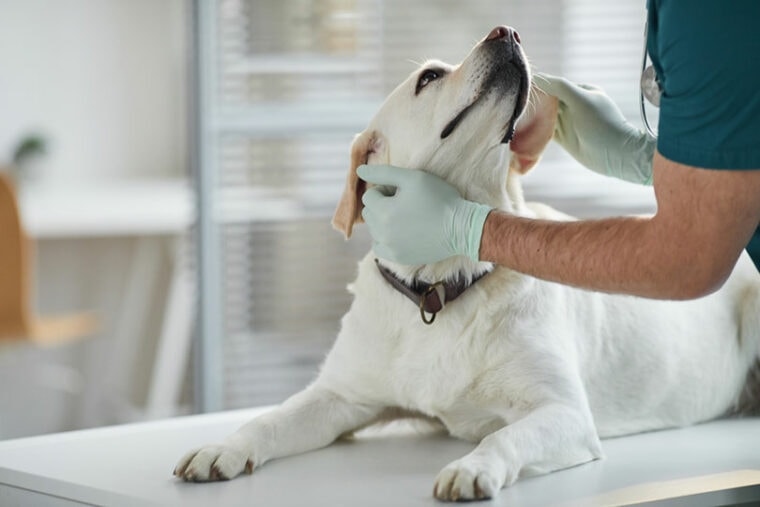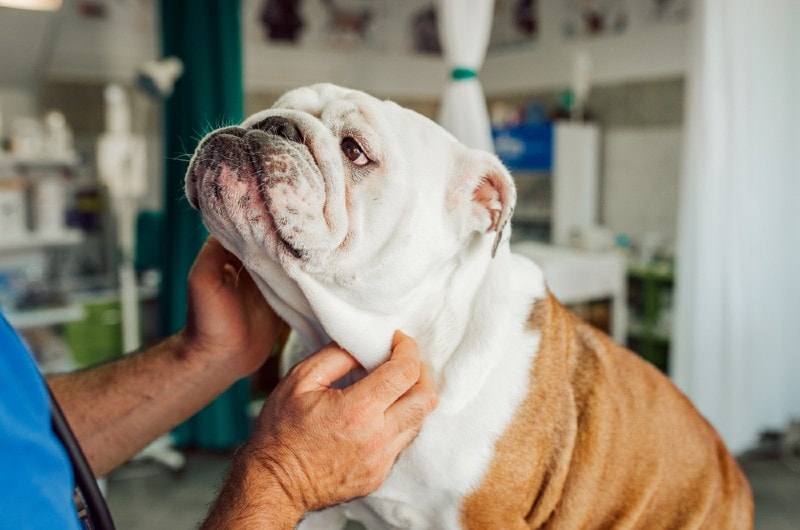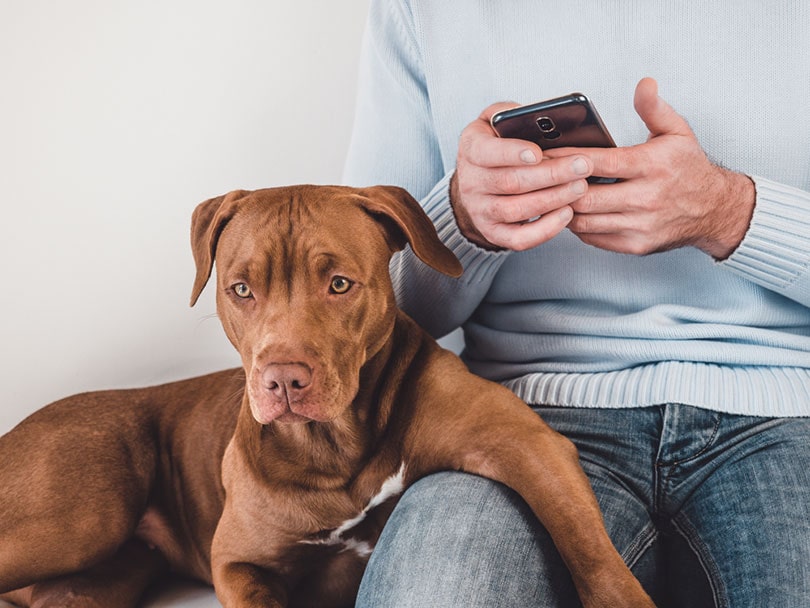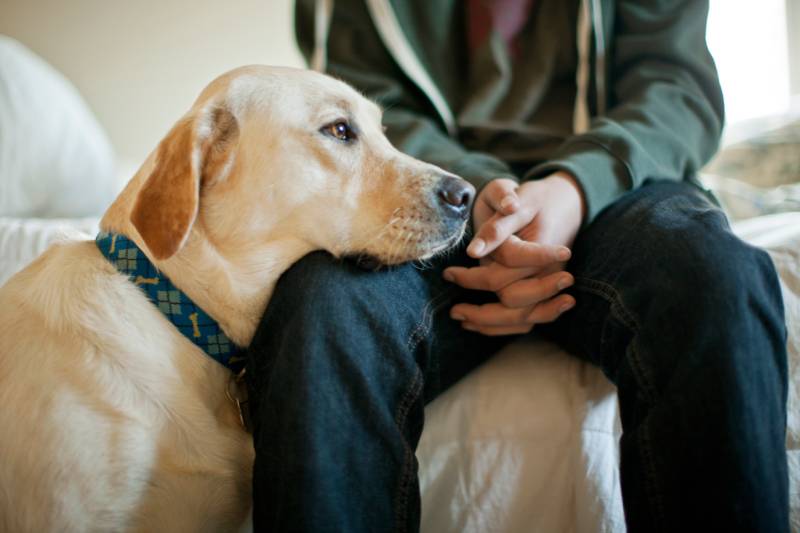
Whether your dog is dealing with a medical emergency or needs their toenails trimmed, a trip to the vet’s office can be a stressful experience. Managing your stressed dog’s bad vet behavior won’t be much fun for you, either. If you dread your dog’s regular vet trips, you’ve come to the right place!
In this article, we’ll offer a handy step-by-step guide to make a vet visit less stressful for your dog. Keeping your dog healthy means the vet can’t be avoided, and we’ll show you how to make this necessary chore a little easier.
Before You Begin
Take stock of your mental state as you prepare to take your dog to the vet. Your dog will take behavioral cues from you, and they’re excellent at reading your body language and mood. Commit to remaining calm and patient no matter how your dog reacts.
Besides patience and a calm attitude, the only supplies you need are a few of your pup’s favorite treats.
Top 8 Ways to Make a Vet Visit Less Stressful For Your Dog
1. Get Your Dog Used to the Vet Ahead of Time
To help your dog reduce anxious feelings at the vet, ask the staff if you can bring your pup for quick visits with no scheduled procedures. Take your dog into the office to say hi, have the staff and vet feed treats, and just take some time to get to calm your pup.
The goal is to help your dog form positive associations with the vet’s office rather than it being an instant source of stress as soon as they walk inside. When you get a new puppy, include trips to the vet’s office in their socialization work.

2. Teach Your Dog to Tolerate Handling
Part of the stress of going to the vet is that your dog experiences physical handling that they don’t deal with anywhere else. You can help reduce that stress by spending time at home getting your dog used to being handled. For the best results, begin this work with your puppy as young as possible.
Mimic some of the steps your vet takes during a physical exam, such as looking in your dog’s ears and mouth, running your hands down their legs, and handling their feet. Offer your dog plenty of treats as you do so, again trying to form positive associations with the procedures.
3. Avoid Scheduling Your Appointment at Busy Times
If your dog gets stressed at the vet, try to schedule your appointment during a less busy time. For example, avoid weekends or evening hours if your vet offers those. Waiting in a crowded lobby can increase your dog’s anxiety, and they’ll likely pick up on the sense of hurry everyone is experiencing. Without rushing to the next appointment, your vet and their staff may have more time to work slowly with your dog to keep them calm.

4. Ask Your Vet for Help
Veterinarians understand that many pets are stressed when they come to visit and do everything they can on their end to decrease anxiety. Don’t be afraid to ask your vet for suggestions to make the visit more pleasant for everyone. Maybe your dog would be calmer if the appointment took place outside.
Some dogs are triggered by the sight of a white coat often worn by vets. Ask your vet if they’re okay with taking the coat off. Many vet clinics now prioritize low-stress, fear-free handling techniques and will be happy to accommodate your dog’s needs.
5. Bring a Comfort Object
If your dog is particularly attached to a blanket, bed, or some toy, bring it with you to the vet. The smell of this familiar object can help relax your dog. You can also use the toy to distract your dog while waiting to see the vet.

6. Take Car Trips to Places Other Than the Vet
If the only time your dog gets in the car is to go to the vet, their stress reaction will likely begin the minute they enter your vehicle. To avoid this, make sure you take your dog on car rides to other places, especially fun places. Drive your dog to go for a hike, to the pet store for a new toy, or drive around the neighborhood feeding your pup treats frequently.
7. Don’t Over-Comfort Your Dog

While it can be tempting to make a big fuss about comforting your dog when they’re stressed at the vet, you could make matters worse. As we mentioned already, dogs are masters at decoding human body language. If you act differently than usual, it could increase your dog’s stress. Don’t ignore your dog, but be calmly reassuring.
8. Use Calming Products
Another option to lower your dog’s stress at the vet is to use a calming product, such as a pheromone spray. Ask your vet for other suggestions, such as calming treats or supplements. If your dog’s anxiety can’t seem to be controlled any other way, your vet may prescribe medications to help manage it. Some dogs benefit from receiving sedating medication just before vet visits.
Conclusion
Even healthy dogs should receive a physical exam at least once per year, so there’s no avoiding going to the vet. Many dogs take their doctor visits in stride, but if yours isn’t one of them, try one or more of these steps to help reduce their stress. Your dog may never love visiting the vet, but with patience and plenty of treats, you can help them learn to tolerate the visits at least.
Featured Image Credit: SeventyFour, Shutterstock








